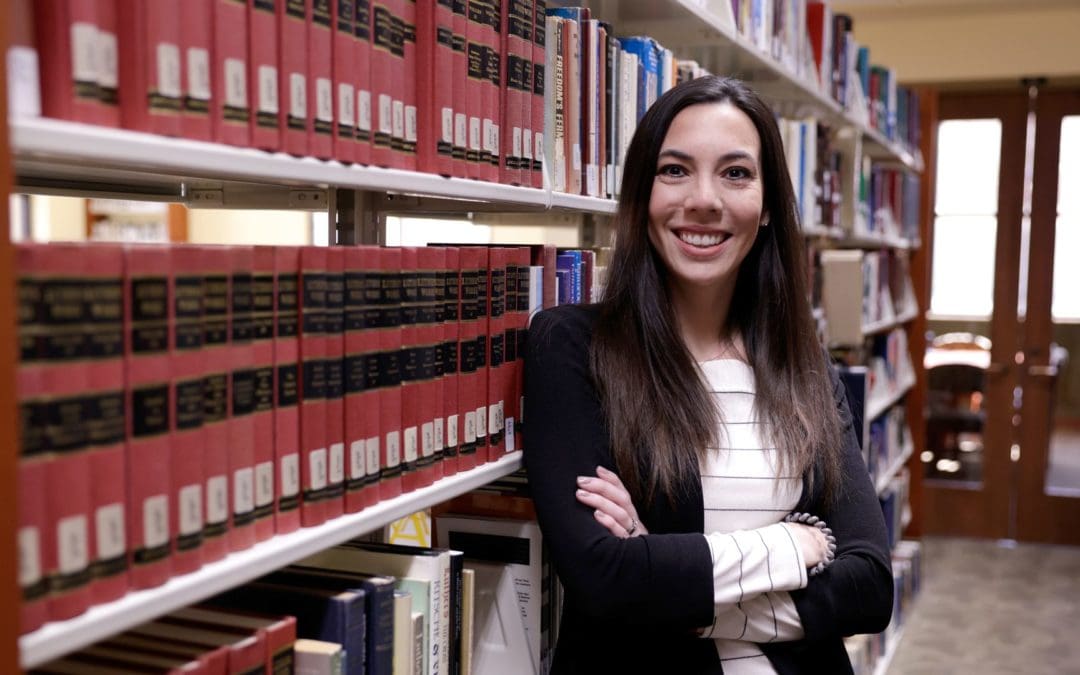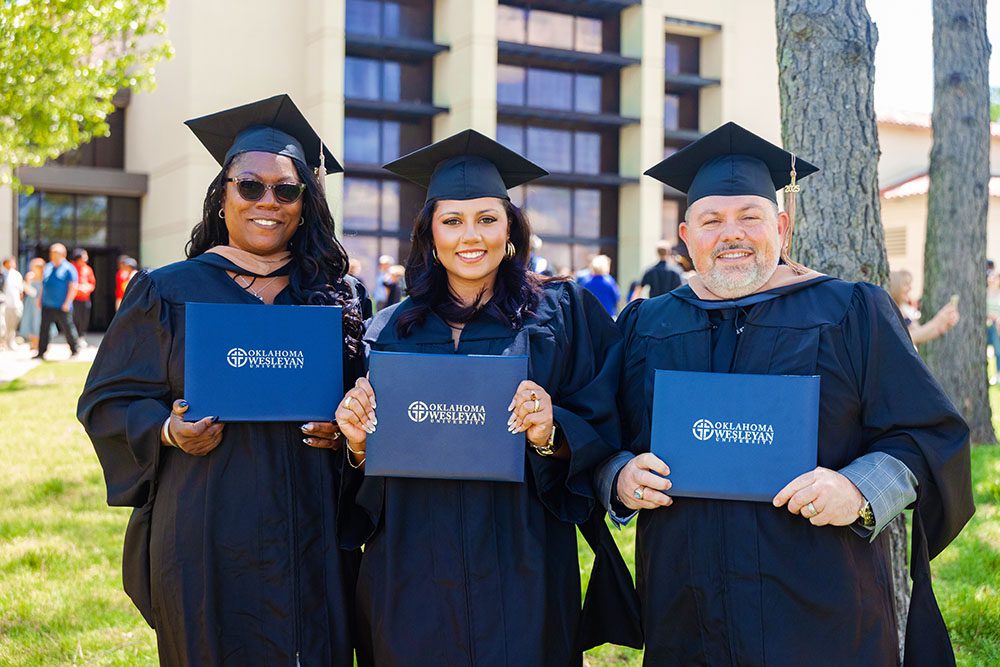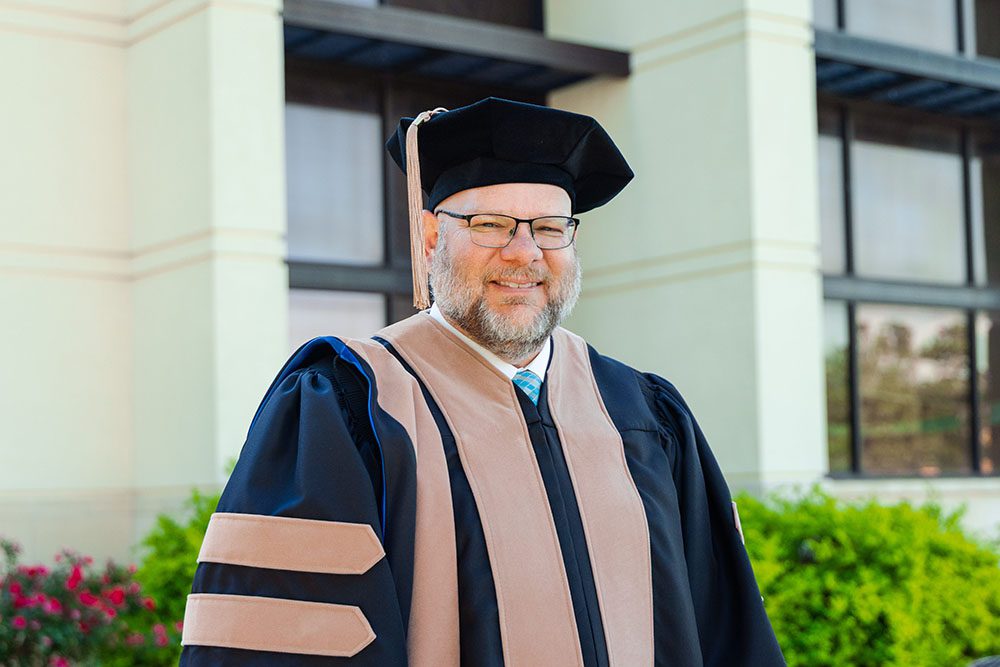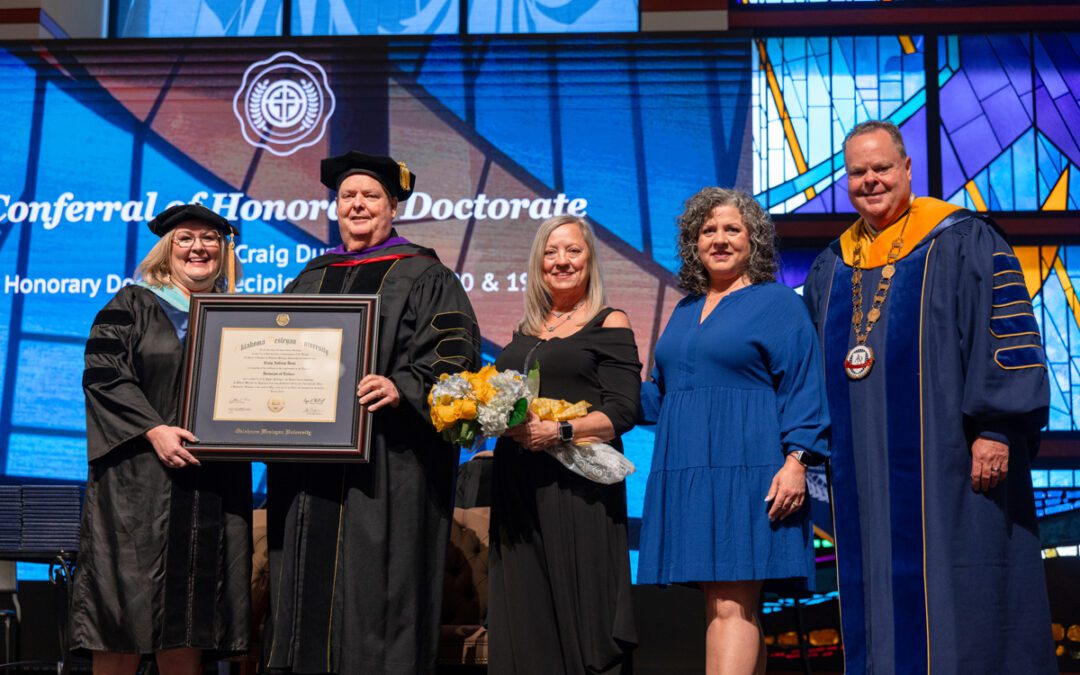Professor Julie Hufstetler can tell you more about Baroness Louise Lehzen, Queen Victoria’s governess and a major influence on the future queen, than anyone else you know. Guaranteed.
Her Lehzen research is part of ongoing dissertation work for her Ph.D. program at Oklahoma State University. She aims to write broadly about the role of the governess in Victorian Britain, a job that created an interesting social paradox at the time. “My goal is to show that she’s creating this different rung on the social ladder of Victorian society,” she said.
Lehzen is one high-profile example of this, a case study in the paper. “She had no title. She barely had any money. But she was an incredible teacher, and she taught Queen Victoria from early on, from the time she was three years old,” Hufstetler said. Eventually, Lehzen was given the title of Baroness, despite her lack of upbringing and class standing, because of her teaching skill and her becoming indispensable to the future queen—something unheard of at the time.
It’s Hufstetler’s genuine passion for work like this that quickly shines through during conversation, and that infectious spirit has made her popular amongst OKWU students during her time as a professor of social and behavioral sciences.
Serving the God of History
Hufstetler grew up attending school in Texas, near Houston. She enjoyed it, as you’d expect of a future professor—but not for the academic rigor. “My parents do laugh at the fact that I’m the one in academia, because they definitely would not have foreseen that when I was growing up,” she said. “I was a fine student, but I never really tried.”
It wasn’t until she started her political science degree at Texas A&M that the academic bug really took hold. “What my mom hoped would happen is exactly what happened. I found that I loved college,” Hufstetler said. “I found a lot of success [there] and started to really enjoy school.”
After graduating, Hufstetler looked for a job. Her mother—who worked at a private high school—alerted her to an opening for teaching history there, which wasn’t something she had considered before.
“Not at all. I’ve always enjoyed history, and I enjoy reading,” she said. “I never really knew exactly what I wanted to do.”
Still, she decided to give it a shot for a year. What she found wasn’t a job, but a calling. “I fell in love with it. I’ve never looked back,” she said. “I definitely feel called to be a history teacher.”
Hufstetler ended up teaching history at two different Christian high schools in Texas, and she cherished the opportunity to teach from a faith perspective. “I really love Christian education. I love being able to talk about my faith. I love being able to teach history from a Christian worldview,” she said. “Our God is the God of history.”
I love being able to talk about my faith. I love being able to teach history from a Christian worldview. Our God is the God of history.”
A New Classroom
When the Hufstetler family moved to Bartlesville, Julie had never heard of OKWU. Her husband had just gotten a job at ConocoPhillips, and one day they drove through town to familiarize themselves with their new home. When they drove past OKWU’s campus, Julie decided to look it up. What she found intrigued her, specifically an article about the university’s bold pro-life stance.
“I started doing some more research online and saw that they needed an adjunct history professor, and I thought hey, you know, I can try this,” she said.
She began as an adjunct in 2016, taking a position as a full-time faculty member in 2017. Since then, she’s cherished it all: the coursework, the atmosphere, and—most especially—the lasting relationships she and her family have formed with the community. She loves the tight-knit atmosphere and the way students become family.
“Some of my closest friends are students and former students now,” she said. “I’ve seen them get married and I’ve seen them have babies and all of this stuff.”
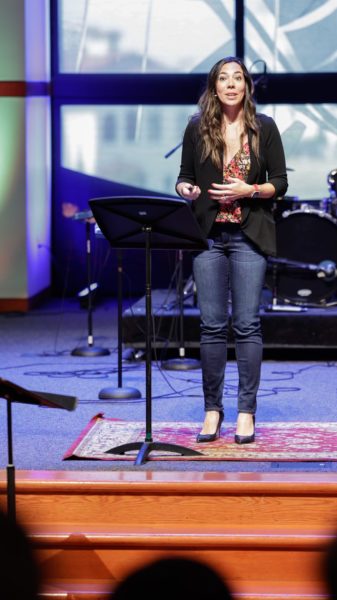
Professor Hufstetler spoke at OKWU’s Engage Conference last year.
The material, of course, is also a driving force of Hufstetler’s passion, as she strives to present history in a fresh and exciting way for her students. The goal is a connection with the material and—ultimately—a kind of understanding. That comes from emphasizing history as story, with the historical actors as characters in a grand, international drama.
“If I’m able to tell those stories, they remember it more, first of all, so they’re going remember the timeline, they’re going to remember the names,” she said. “But also, it just creates more empathetic students. They’re able to connect more with these historical actors… I think we need more empathy in this world, and history does that for us.”
It’s for this reason that she created an upper-level class on Nazi Germany, a subject in which she specialized during her master’s coursework at the University of Houston. During the semester, she and her students dive into an expansive history of the Third Reich, with the goal of understanding how terrible atrocities like those committed by the regime can actually happen.
“I think students are just craving truth. And they come into this class, and they learn about these past atrocities, and… we just have these discussions that are so incredible,” Hufstetler said. “One of the things I love teaching most about Nazi Germany is how these men and women, they were human beings just like you and I.”
It’s a topic Hufstetler is personally passionate about, like her research on Lehzen, and that fire for the work is easy to identify. The next few years will see her continue her dissertation research, as she takes her comprehensive exams in March and begins drafting her dissertation shortly after that. And she’ll be presenting her research over Lehzen on a panel at the American History Association’s Pacific Coast Branch this month.
In the meantime, she’ll keep doing what’s she’s been doing for the past five years—telling the stories of history, one class at a time.
For more information on OKWU’s Social Sciences program, click here.
